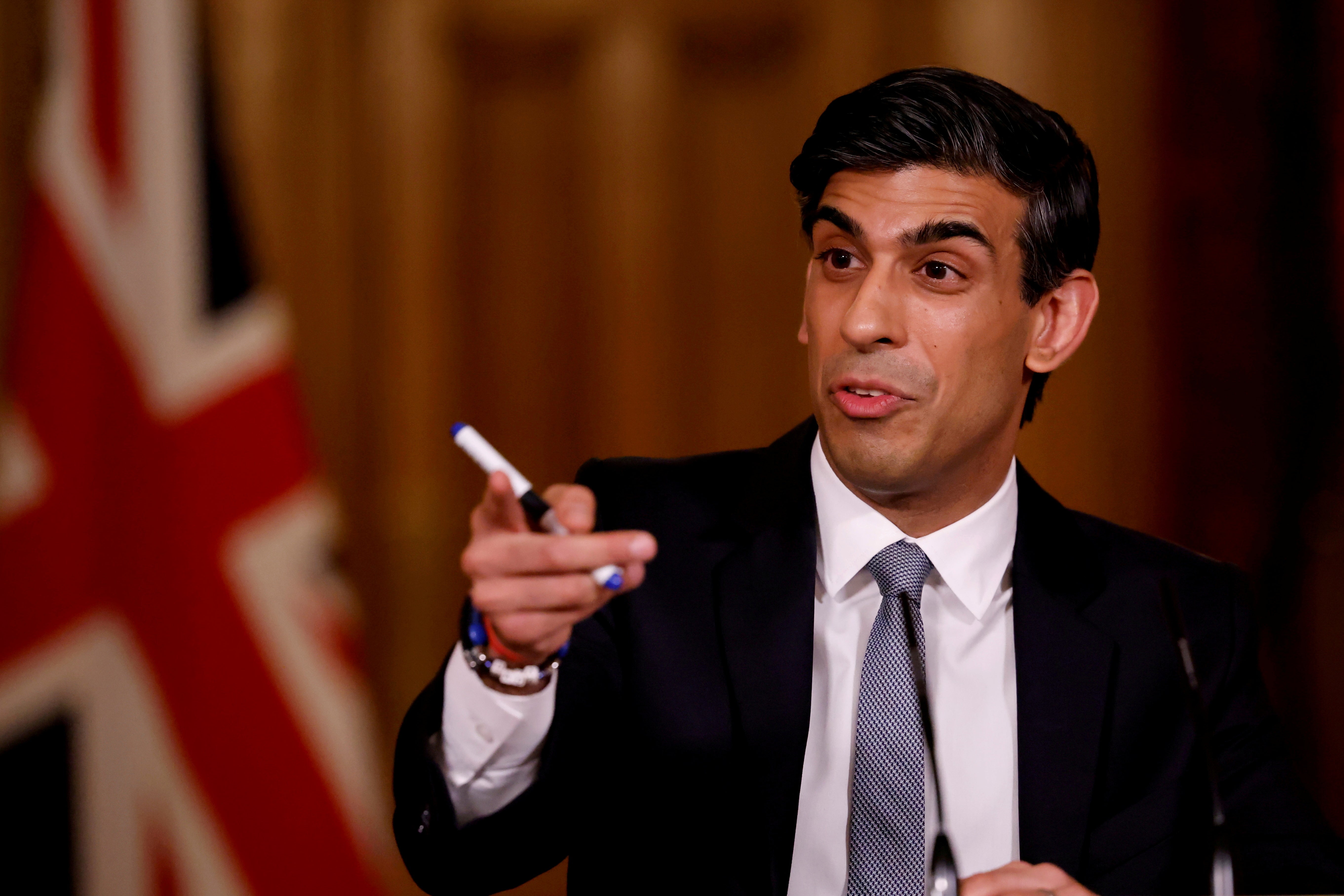Your support helps us to tell the story
From reproductive rights to climate change to Big Tech, The Independent is on the ground when the story is developing. Whether it's investigating the financials of Elon Musk's pro-Trump PAC or producing our latest documentary, 'The A Word', which shines a light on the American women fighting for reproductive rights, we know how important it is to parse out the facts from the messaging.
At such a critical moment in US history, we need reporters on the ground. Your donation allows us to keep sending journalists to speak to both sides of the story.
The Independent is trusted by Americans across the entire political spectrum. And unlike many other quality news outlets, we choose not to lock Americans out of our reporting and analysis with paywalls. We believe quality journalism should be available to everyone, paid for by those who can afford it.
Your support makes all the difference.Rishi Sunak is withholding support for Joe Biden's minimum global business tax rate ahead of discussions about the issue at the G7.
The new US president is pushing for a 21 per cent rate as part of a plan to crack down on tax avoidance by multinational companies like Amazon.
But the UK is resisting the proposal, set to be discussed at a meeting in Cornwall when leaders meet for the G7.
The British government instead wants reforms to focus on making multinational companies pay more tax in the countries where they make sales and operate.
Officials reportedly believe that Mr Biden's proposal would disproportionately benefit the US and simply see firms end up paying the higher rate in California.
The question of where tax is due has become more vexed with the rise of the digital economy, with companies operating out of low tax jurisdictions like Luxembourg and Ireland while selling to consumers in Britain.
The issues are being discussed at both G7 and OECD level.
An HM Treasury spokesperson said: “The UK has been proactive in pressing for an international solution to the tax challenges posed by digitalisation of the economy for a number of years. And the Chancellor has made it a key priority of the UK’s G7 presidency.
“We welcome the US administration's renewed commitment to reaching a solution to these challenges through the OECD. It’s also crucial that any agreement includes changes to ensure digital businesses pay tax in the UK that reflects their economic activities.”
The UK has separately introduced its own digital sales tax, which the Treasury estimates will raise around £500m per year from big US tech companies by financial year 2024-25.
The Financial Times reports that Mike Williams, the Treasury’s director of business and international tax, told an online conference for Oxford university’s Centre for Business Taxation: “The core UK proposition is that we’ve got to solve the digital tax issue, which we’ve been working on for years.
“It’s not primarily about a minimum tax. Minimum taxes might help — so long as they work — to ensure businesses pay tax, but it matters as well where tax is paid.
He added: “In terms of providing schools for the children of Coventry, it is not actually tremendously helpful if more tax is paid in California when it ought to be paid in the UK."
Both the UK and US governments have signalled the end of the era of low corporation tax rates, announcing substantial hikes. The UK rate is set to rise from 19 per cent to 25 per cent by 2023, while Mr Biden wants to raise the US rate from 21 per cent to 28 per cent.

Join our commenting forum
Join thought-provoking conversations, follow other Independent readers and see their replies
Comments